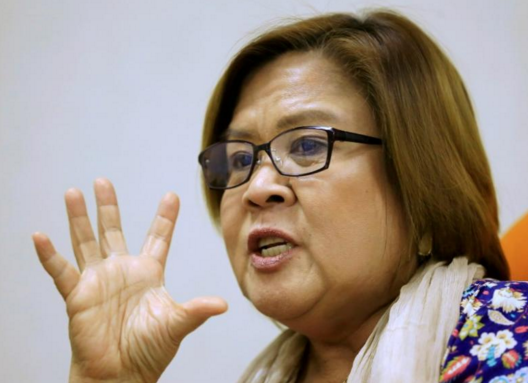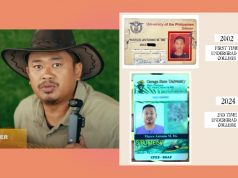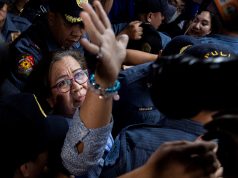MANILA, Philippines — Senator Leila de Lima is seeking to make human rights education mandatory and continuing for law enforcement and military personnel as well as public school teachers.
De Lima, a former chair of the Commission on Human Rights and Justice secretary, said she believes there is a pressing need to enhance respect for the primacy of human rights among the country’s law enforcement agencies
She noted what she said was a lack of appreciation for the CHR as a “partner of security forces in human rights education, the legislative department in rights-based approach to law-making, the judiciary in evolving breaches of human security through enforced disappearance, and intermediary between government and civil society.”
Under Senate Bill 1230, or the Commission on Human Rights Act, the agency shall undertake a program of human rights promotion and advocacy through education and training to enhance respect for the primacy of human rights in coordination with different agencies of government.
The CHR will also be tasked with administering a Mandatory and Continuing Human Rights Education Program for the military, police, and other law enforcement agencies, as well as public school teachers.
De Lima urged Senate President Aquilino Pimentel III to prioritize the bill’s passage and calendar it in the chamber’s legislative agenda.
“CHR has proven its exemplary work as cornerstone of human rights in the country. This has been affirmed by the Supreme Court when it expressly commended the efforts of CHR in the investigation of the disappearance of Jonas Joseph Burgos, who was abducted 10 years ago,” De Lima said.
Aside from Mandatory and Continuing Education, the other salient features of the bill are:
- Perform its Gender and Child Ombud roles to promote and safeguard the rights, interests, and welfare of the marginalized and vulnerable sectors, notably children and women
- Designation of human rights attaches in select Philippine embassies and consulates to address cases of human rights violations committed against overseas Filipino workers
- Grant of power to issue legal protective measures, such as writs of injunction, restraining orders, and cease and desist orders, without waiting for the court to exercise jurisdiction over the matter
- Institutionalization of witness protection program to provide safety to witnesses as well as human rights defenders under threat and safeguard the integrity of evidence
- Establishment of witness auxiliary protection service to provide security, shelter, relocation and livelihood assistance to witnesses and their families
- Fiscal autonomy to allow it to operate independently of the Executive Branch to ensure the unhampered application and protection of human rights principles under any and all possible circumstances
- Establishment of Human Rights Protection Offices in 18 regions and provinces










